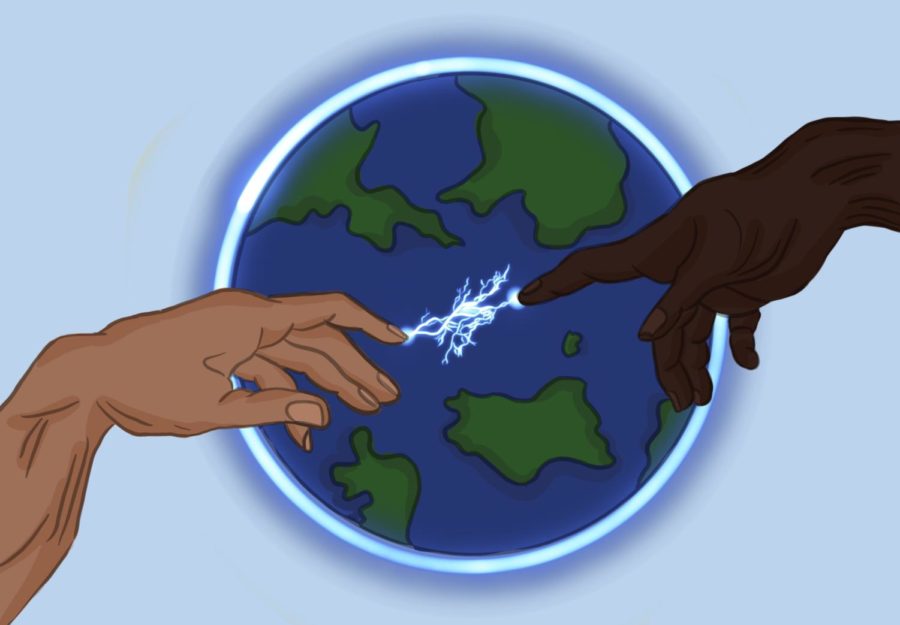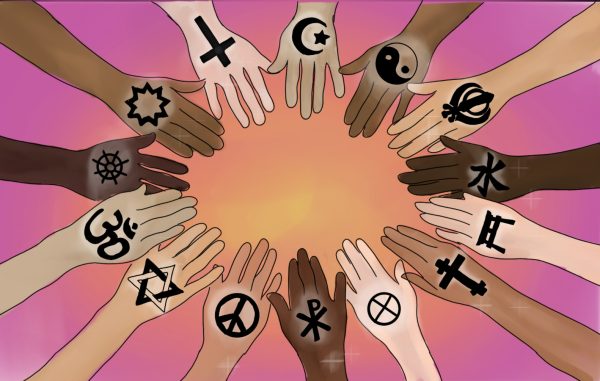What is the purpose of life?
August 17, 2022
Life is a complicated thing that holds an amazing meaning through our existence. It is the thing that differs us from the rest of the universe; the thing that gives us purpose. But what exactly is that purpose? Why do we exist?
First, it’s best to address what life is. Dictionary.com suggests, “the condition that distinguishes organisms from inorganic objects and dead organisms, being manifested by growth through metabolism, reproduction and the power of adaptation to environment through changes originating internally.”
In my opinion, this definition encompasses life quite well, encompassing its simplest life forms, like a plant, to the most complicated life forms, such as a human.
But if a tree, an animal and a human are all forms of life, why are they worth different things? Have different purposes? Who’s to say we as humans are more meaningful than a mosquito, a dog, or a mushroom? The ‘Gaia Theory’ would suggest that we are not worth more than any other living thing, but that the earth and its biological systems all form one singular and equal entity. From this theory, we could conclude that our purpose in life is to sustain the earth and everything in it. The idea that we are the sustains of the earth is also affirmed by the book of Genesis in the Bible – reaching this conclusion via less scientific and more spiritual reasoning.
Genesis 1:26 states: “Then God said, “Let us make mankind in our image, in our likeness, so that they may rule over the fish in the sea and the birds in the sky, over the livestock and all the wild animals, and over all the creatures that move along the ground.” In accordance with the Bible, it is the role of humankind to rule over the animal kingdom, and “Subdue the earth” (Genesis 1:28) and “take care of it” (Genesis 2:15). However, this job does not equate to purpose. If God made our purpose to look after the Earth, and we do so, then why is it that we can still fail to enter heaven? Clearly, there is more to it than just maintaining the Earth.
The purpose of life from a Christian’s perspective would be defined as the pursuit of sustaining a relationship with God and worshipping him. But why? God is an eternal being; all powerful, all mighty, and all-knowing. Before time there was God; he is, was, and forever will be. From a Christian’s perspective, such a being is deserving of infinite praise, and that is what heaven looks like. A place where we eternally worship God. That justifies why worshiping God is a valid purpose, but then why us? Why is it our purpose to eternally worship God, when we could strive for much ‘better’ things like pleasure, money, fame, or relationships? All things on earth are finite. One way or another, the earth will be destroyed, but heaven is eternal.
It is logical, and for the most part natural for humans to strive to establish our meaning for existence in what’s best for us, and in my perspective, that is eternally living and serving out our purpose in which we were created for (worshipping God and having a relationship with him). For me and other Christians, this meets that criterion best and therefore is believed to be our ultimate purpose.
But what if there is no God? If there is no God, then that leaves humans as the superior race, and that means we must devise purpose. There are 3 main ethical frameworks that we could devise purpose from: Epicureanism, Utilitarianism and Deontology.
Epicureanism urges what is morally right in your perspective, and therefore our theoretical purpose would be to maximise self-pleasure, meaning you would live for yourself, and everyone else is just a means to maximise your pleasure. Utilitarianism relies upon the collective purpose based on what majority of people see as morally right. Whatever most people decide on is what the correct way of living is. And finally, deontology is the theory that our purpose is to achieve goals/live within guidelines that are generated outside of one’s own opinion and that all humans should live up to this one guideline.
In conclusion, there is no universally agreed on purpose to life, and many different people live their lives (either consciously or unconsciously) according to a vast array of purposes. Ultimately, it is up to us as individuals to decide our own purpose to peruse, and this article showed but a few of the more common examples of purposes in which people embody throughout life. So, with this, I encourage you as the reader to consider your own purpose in life. Why is life worth living? What are you trying to achieve? Why is that more notable in following than something else? Do you believe that life has a purpose at all?












